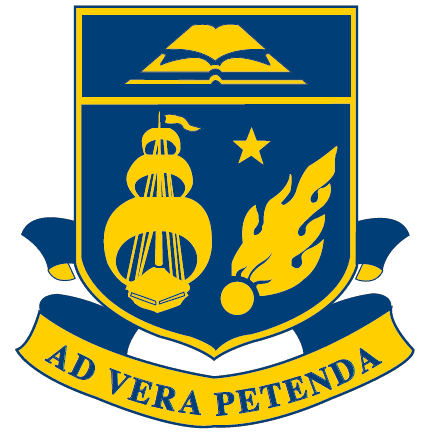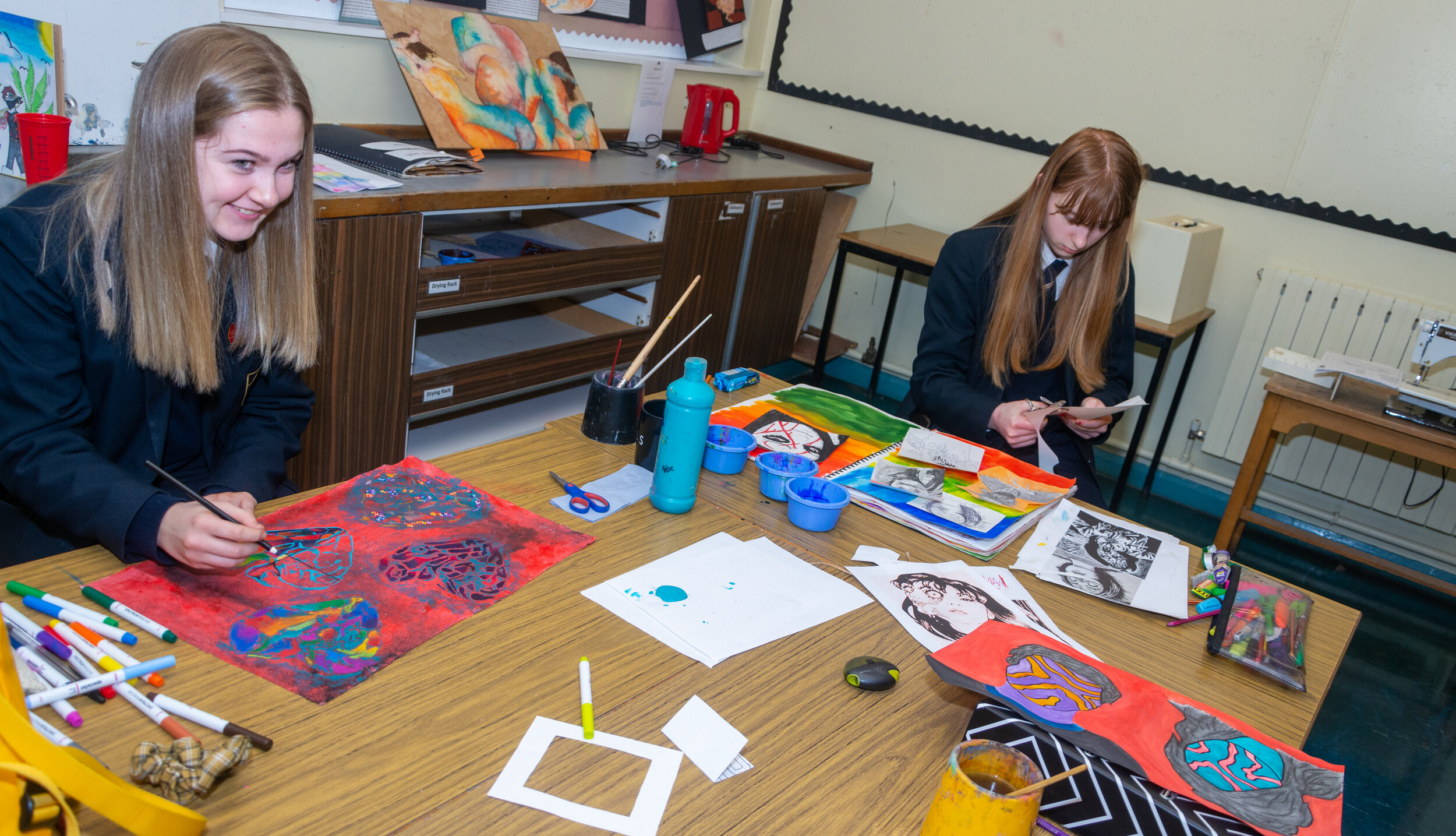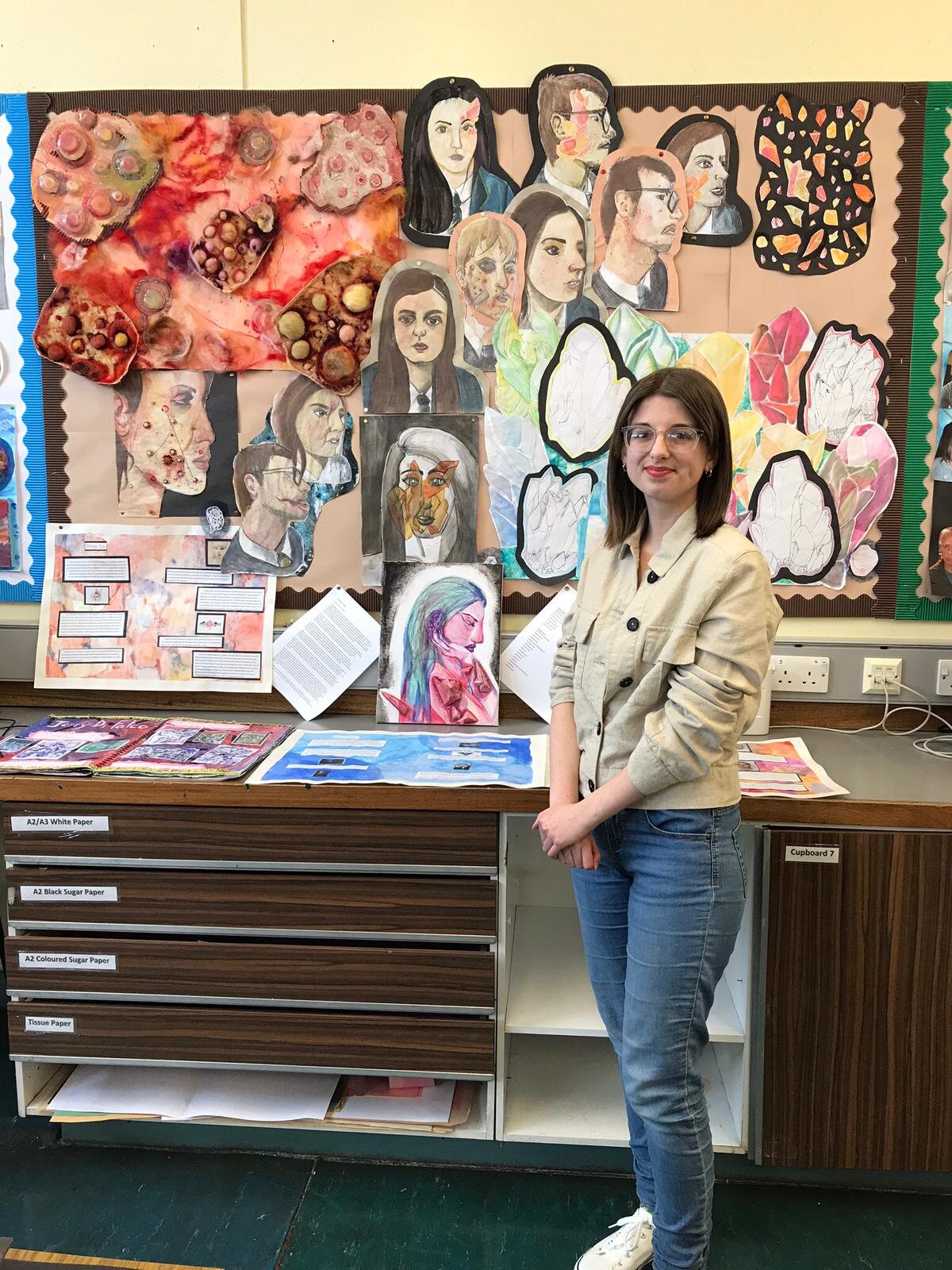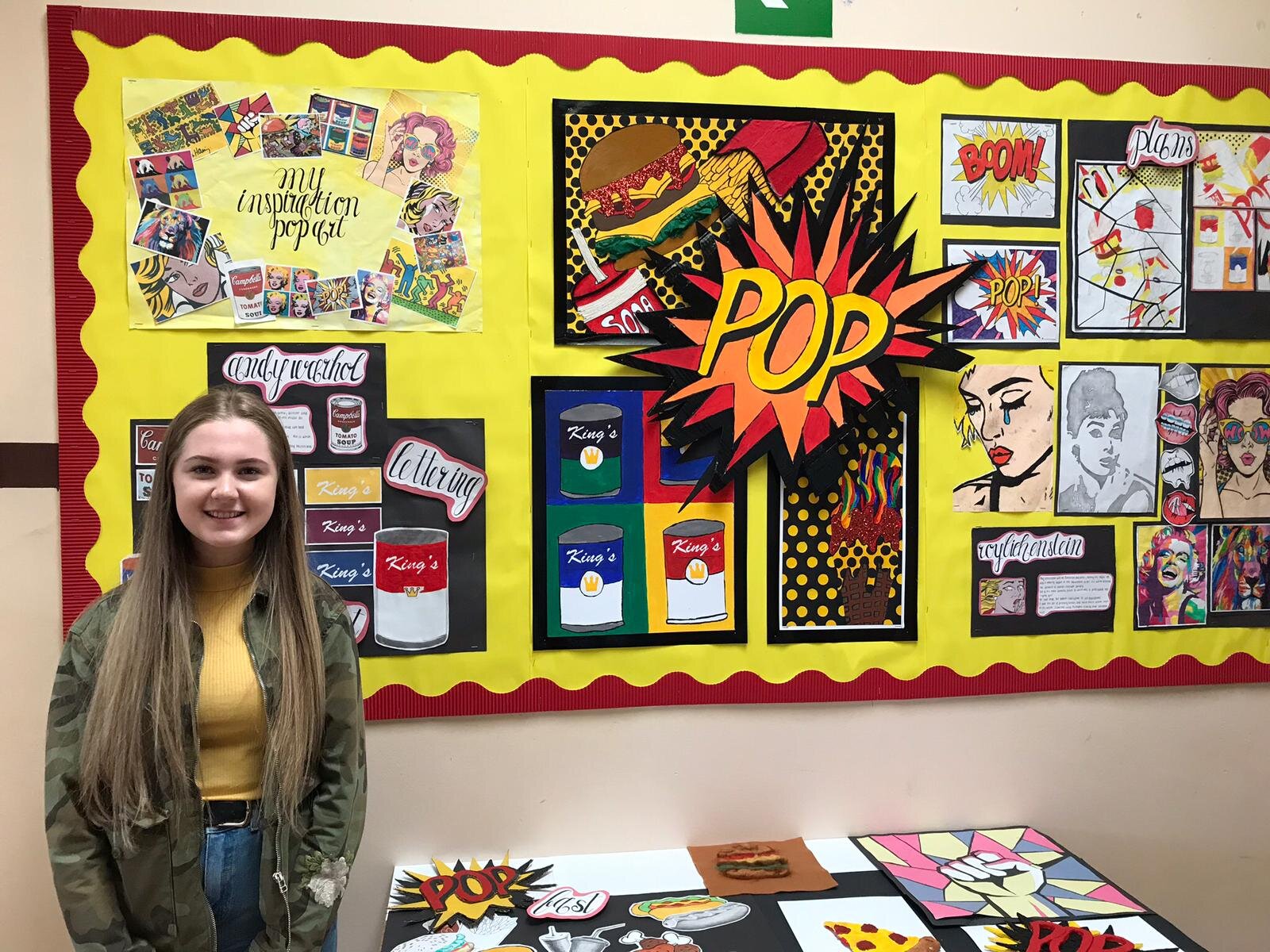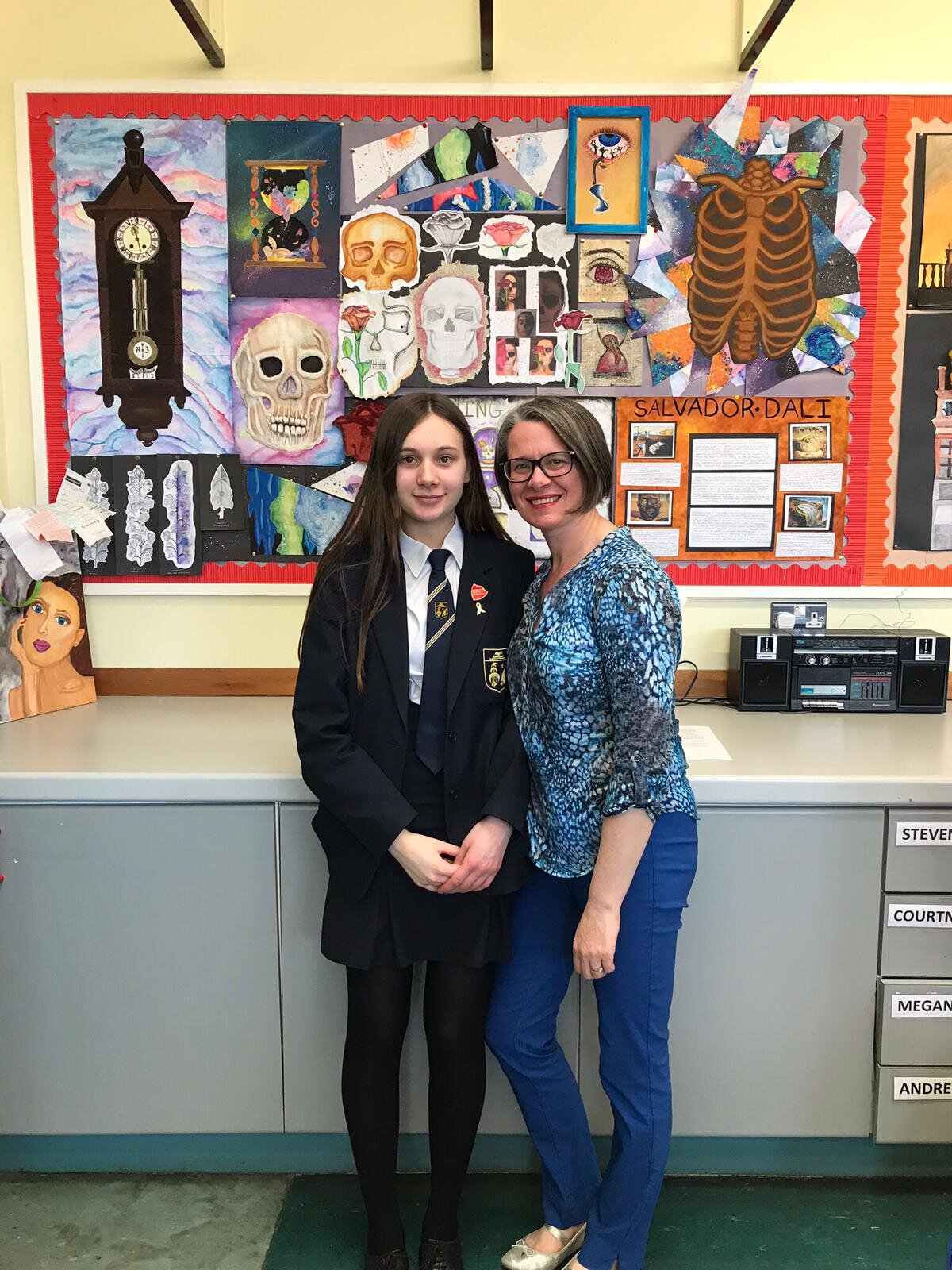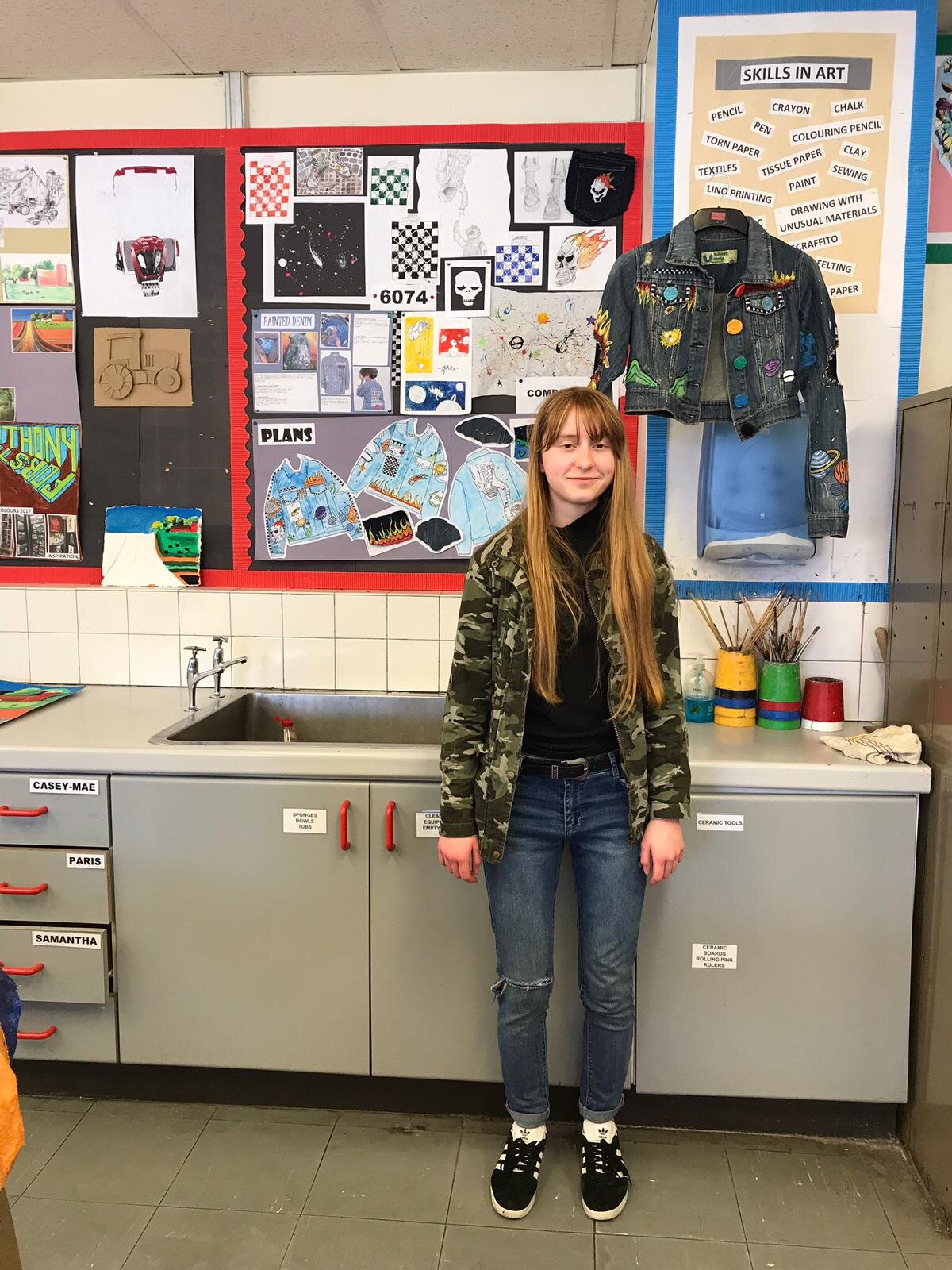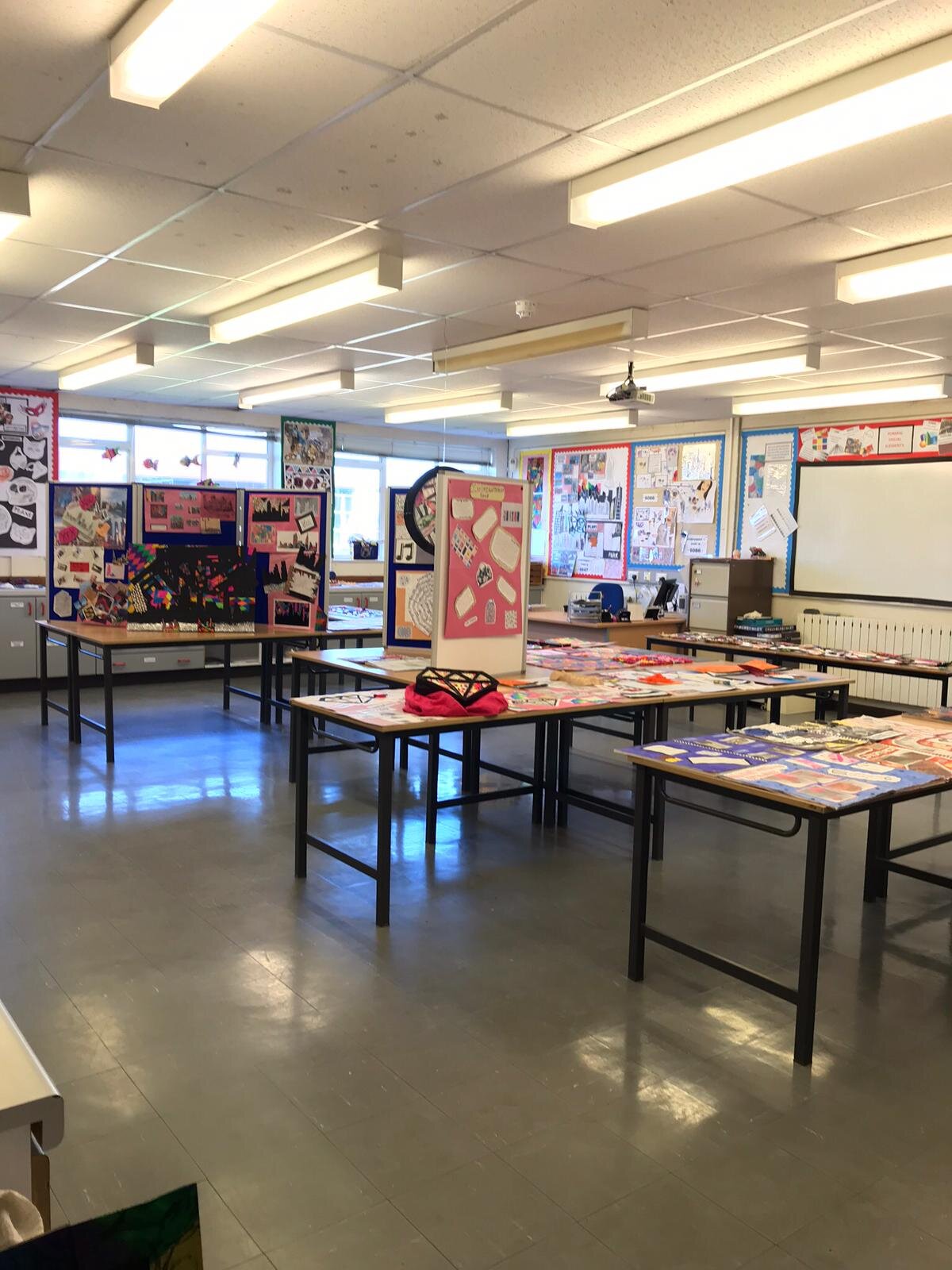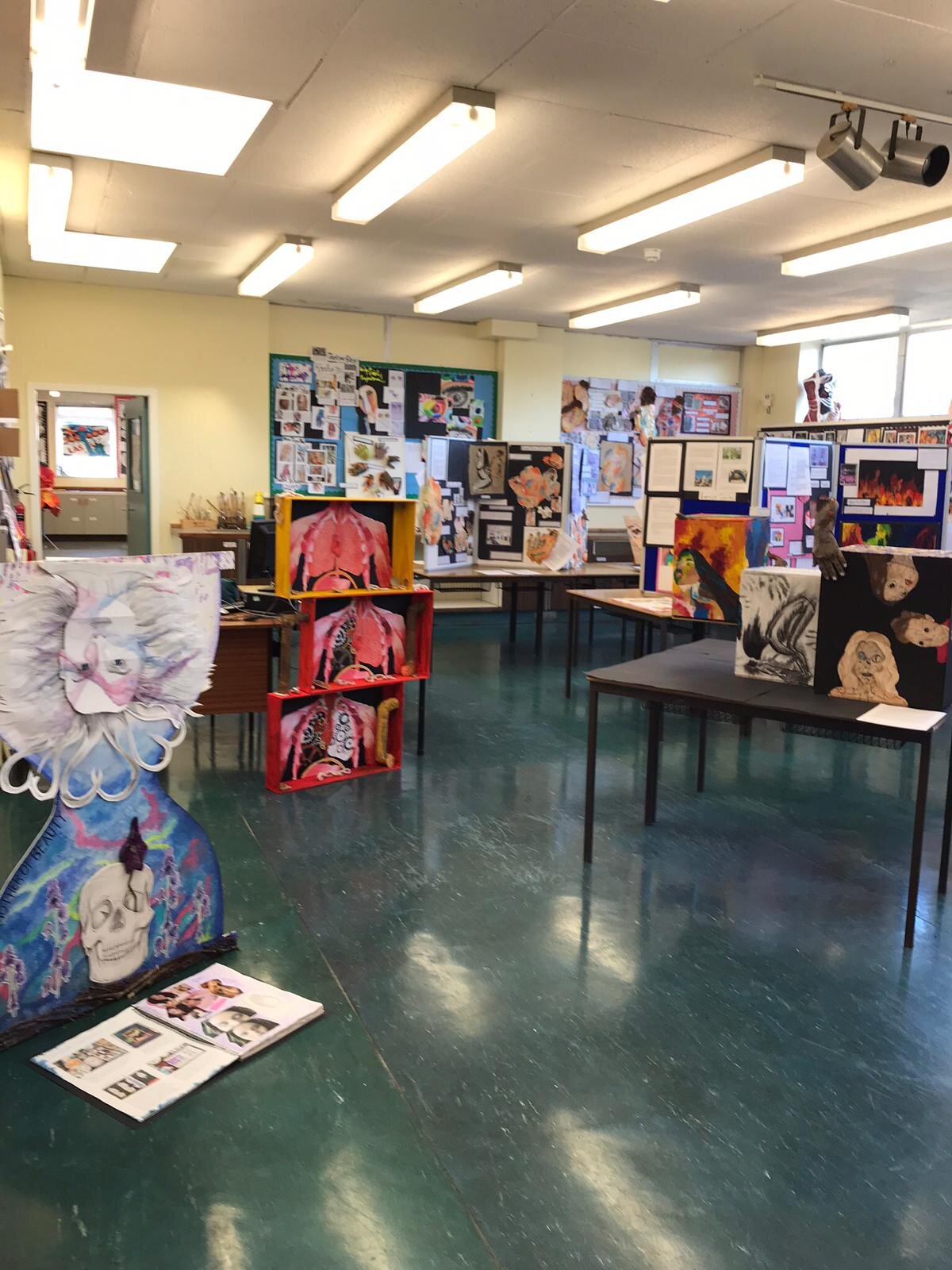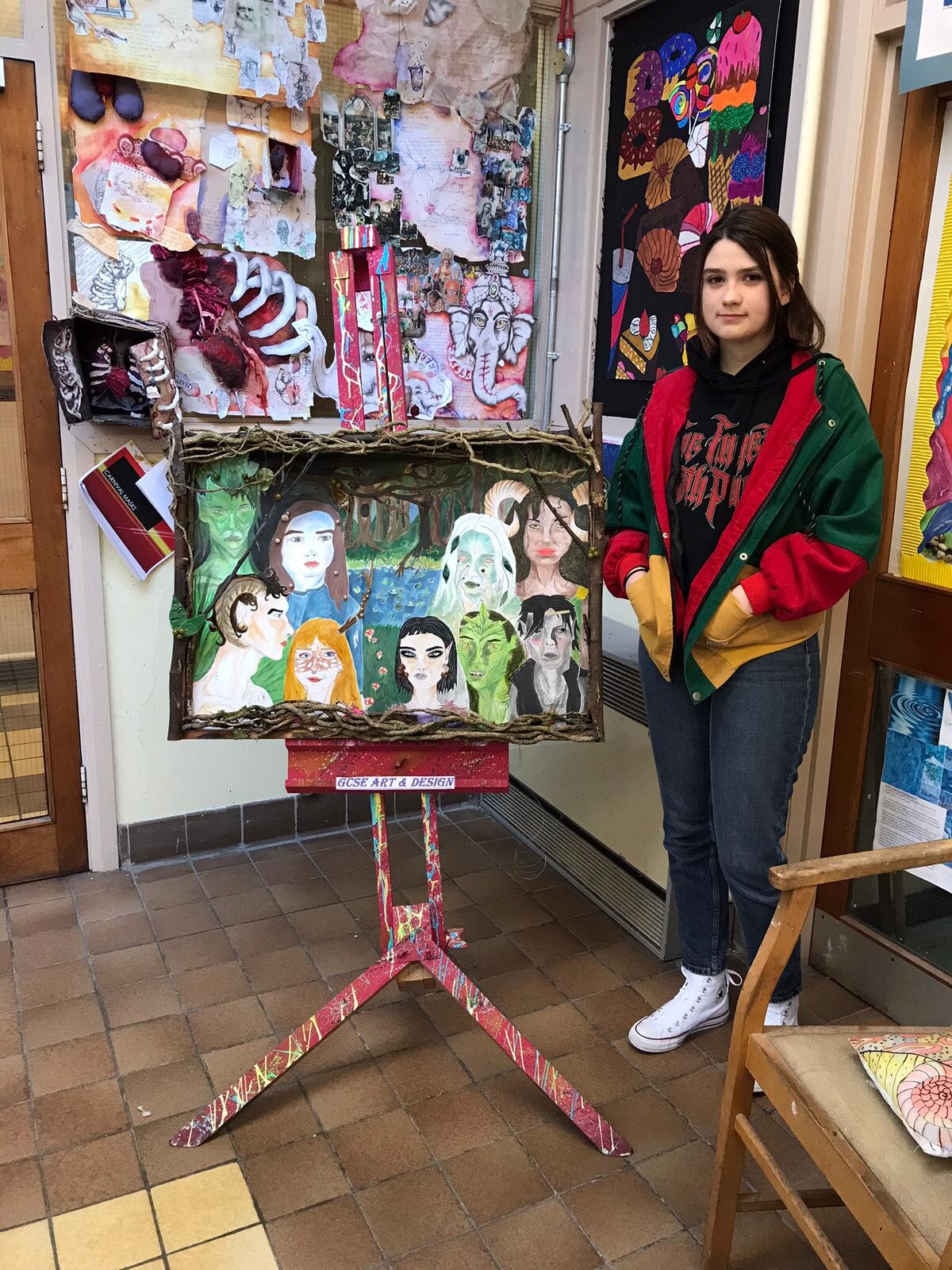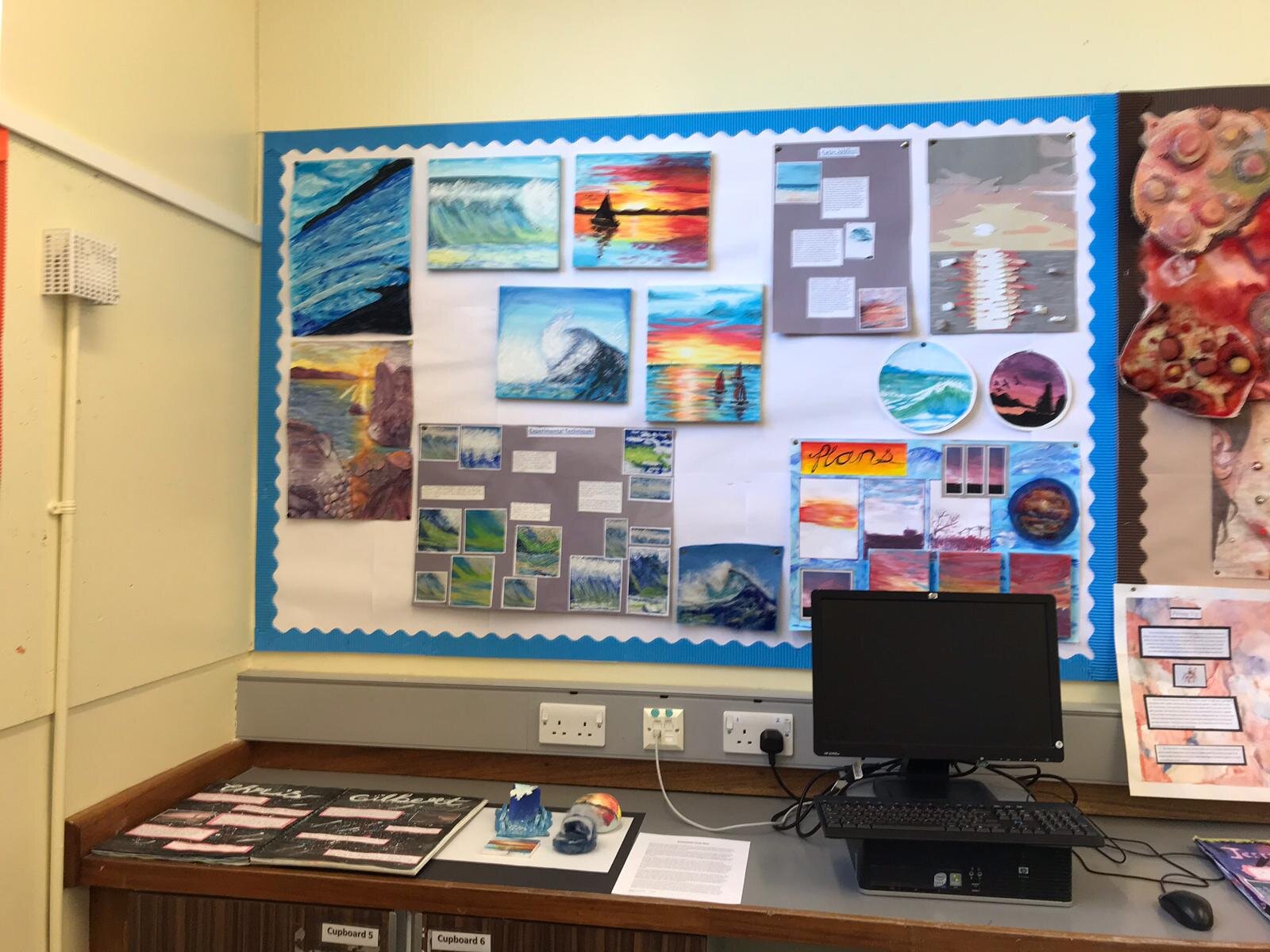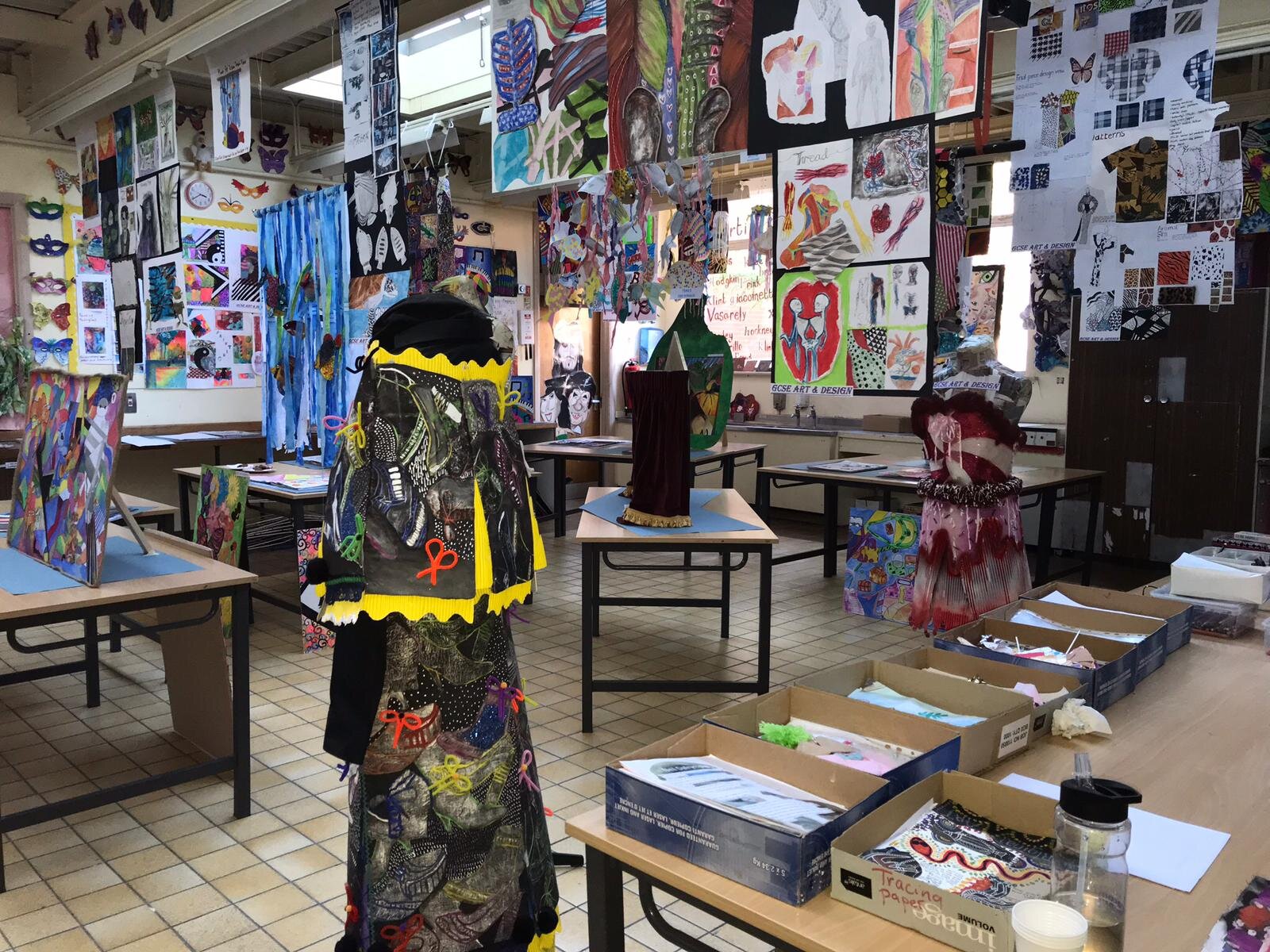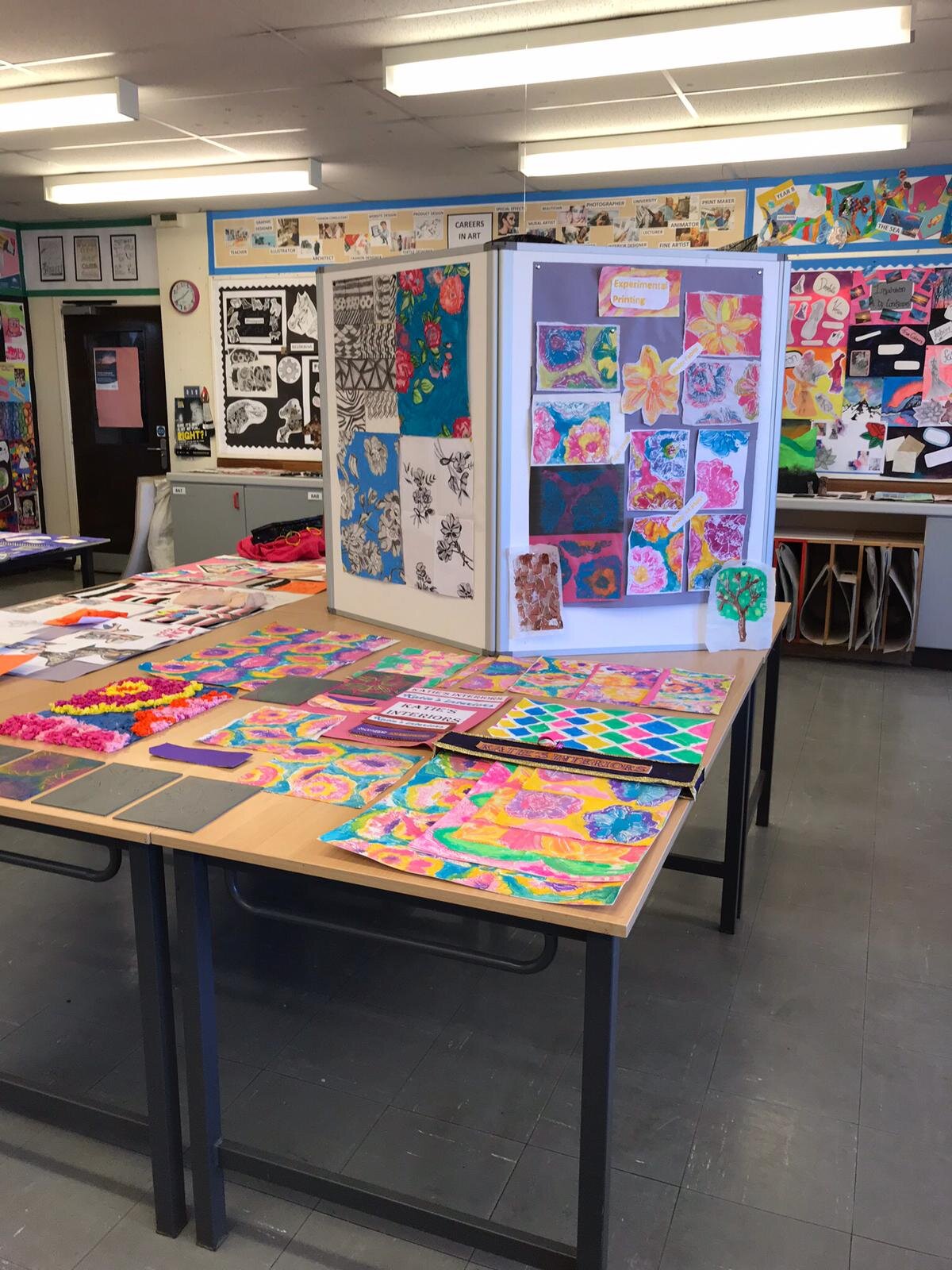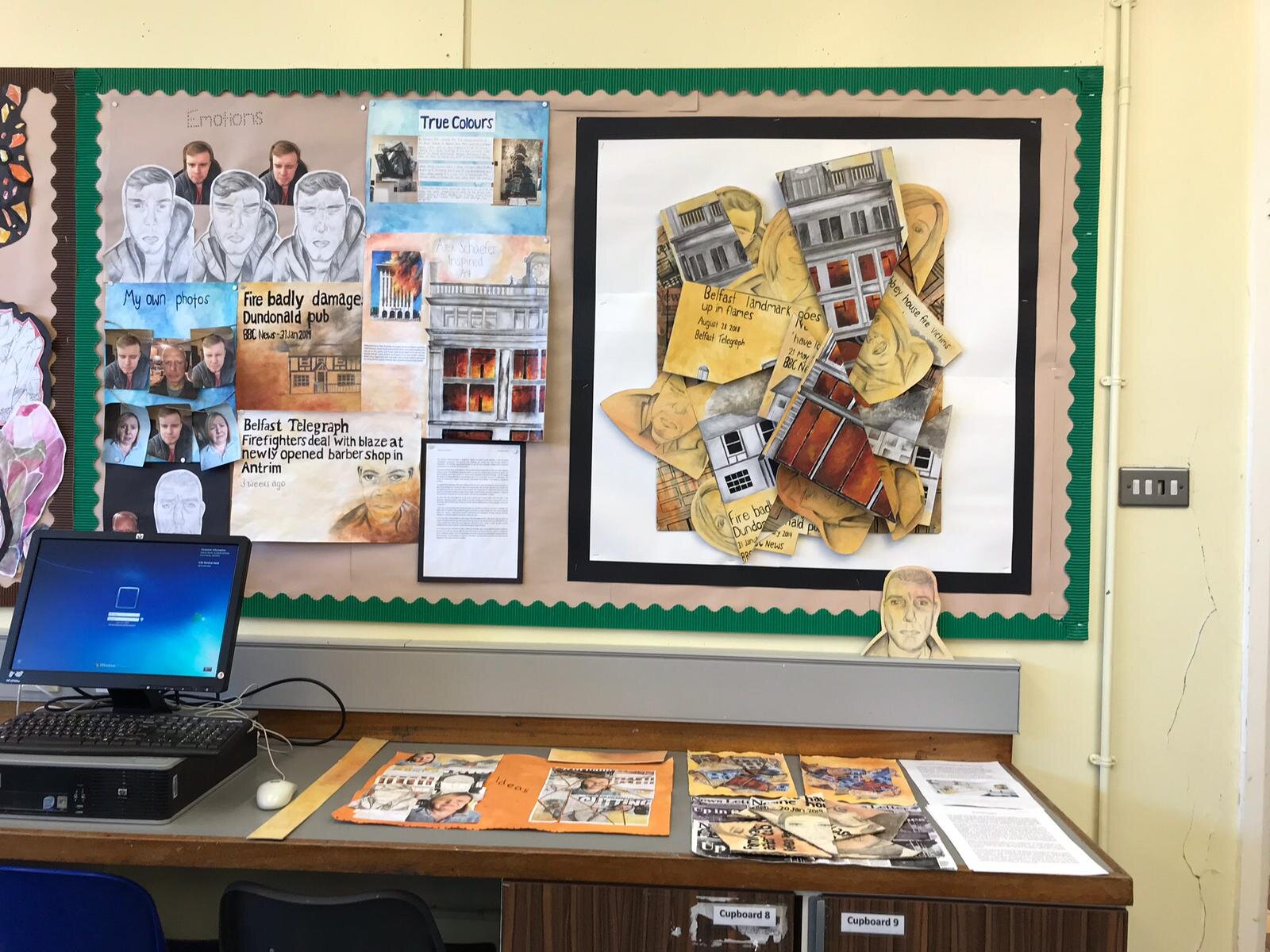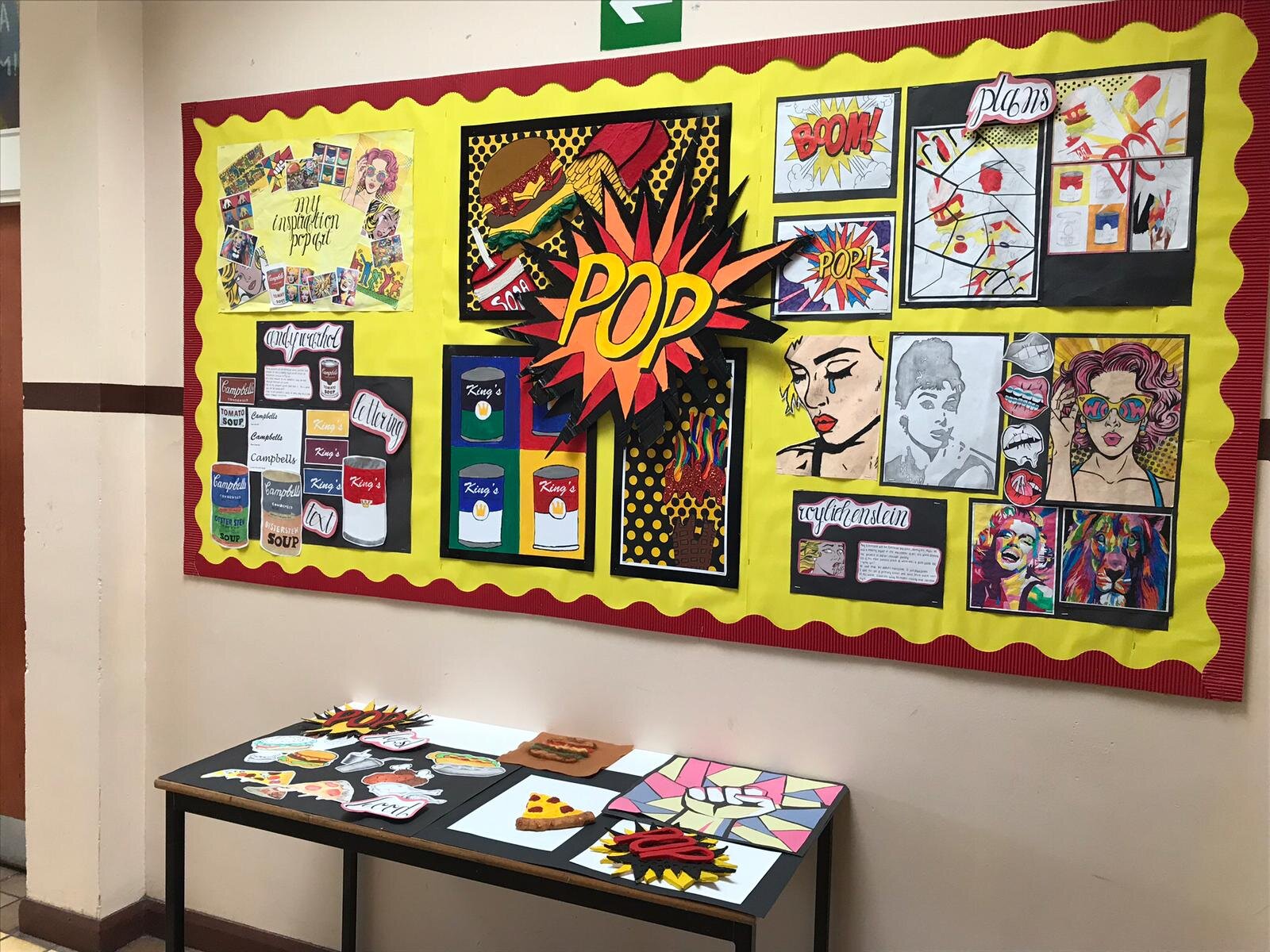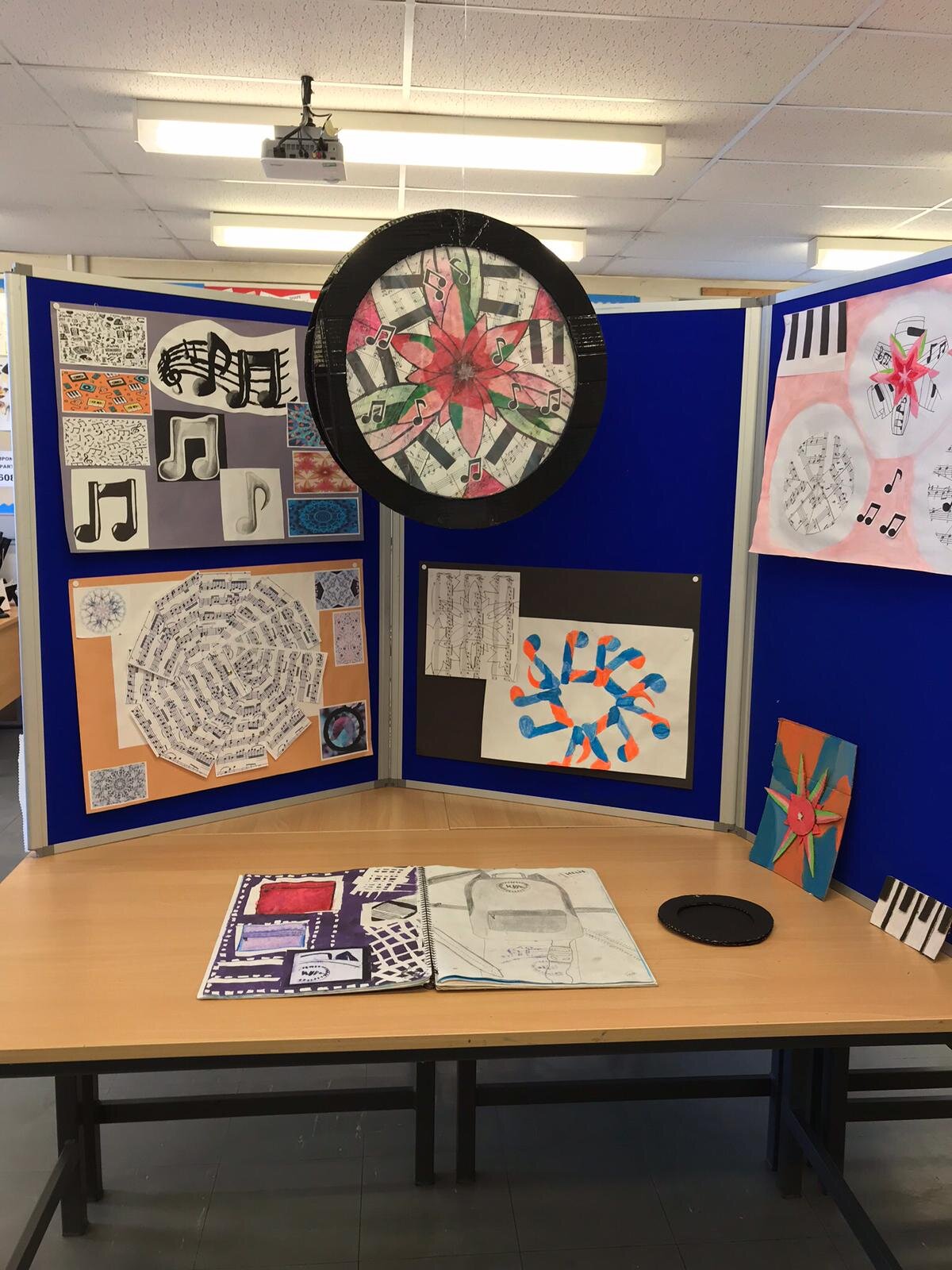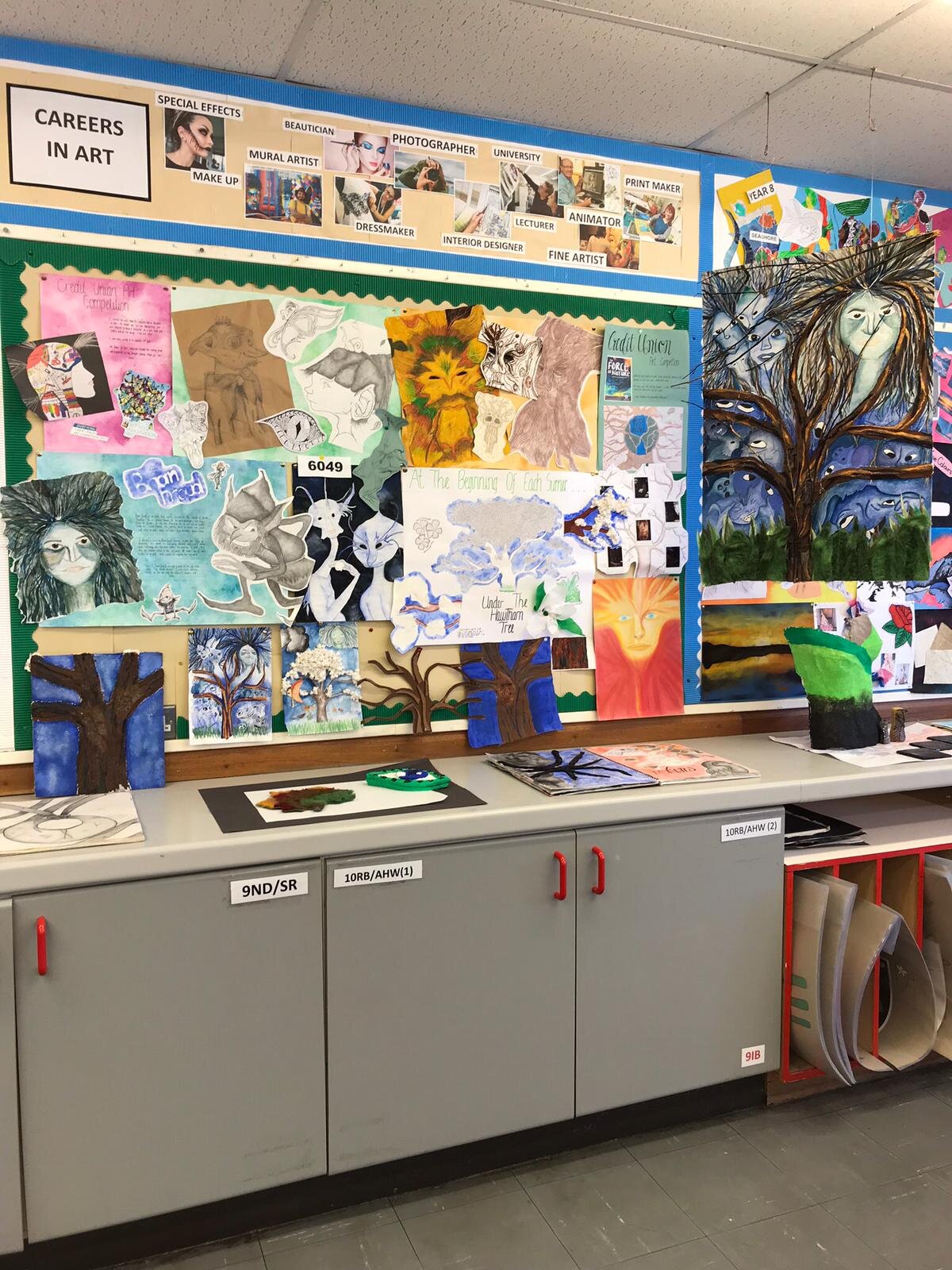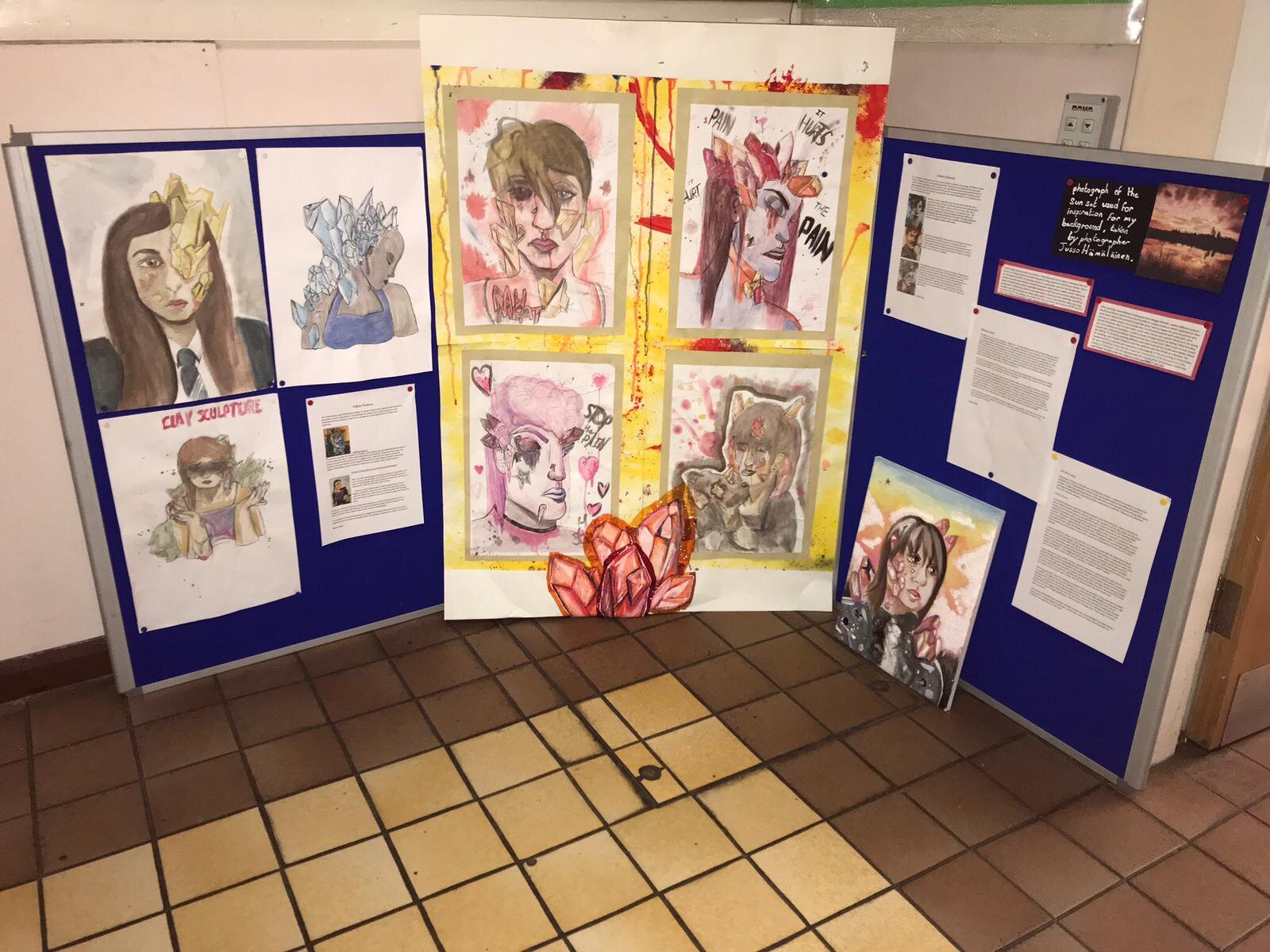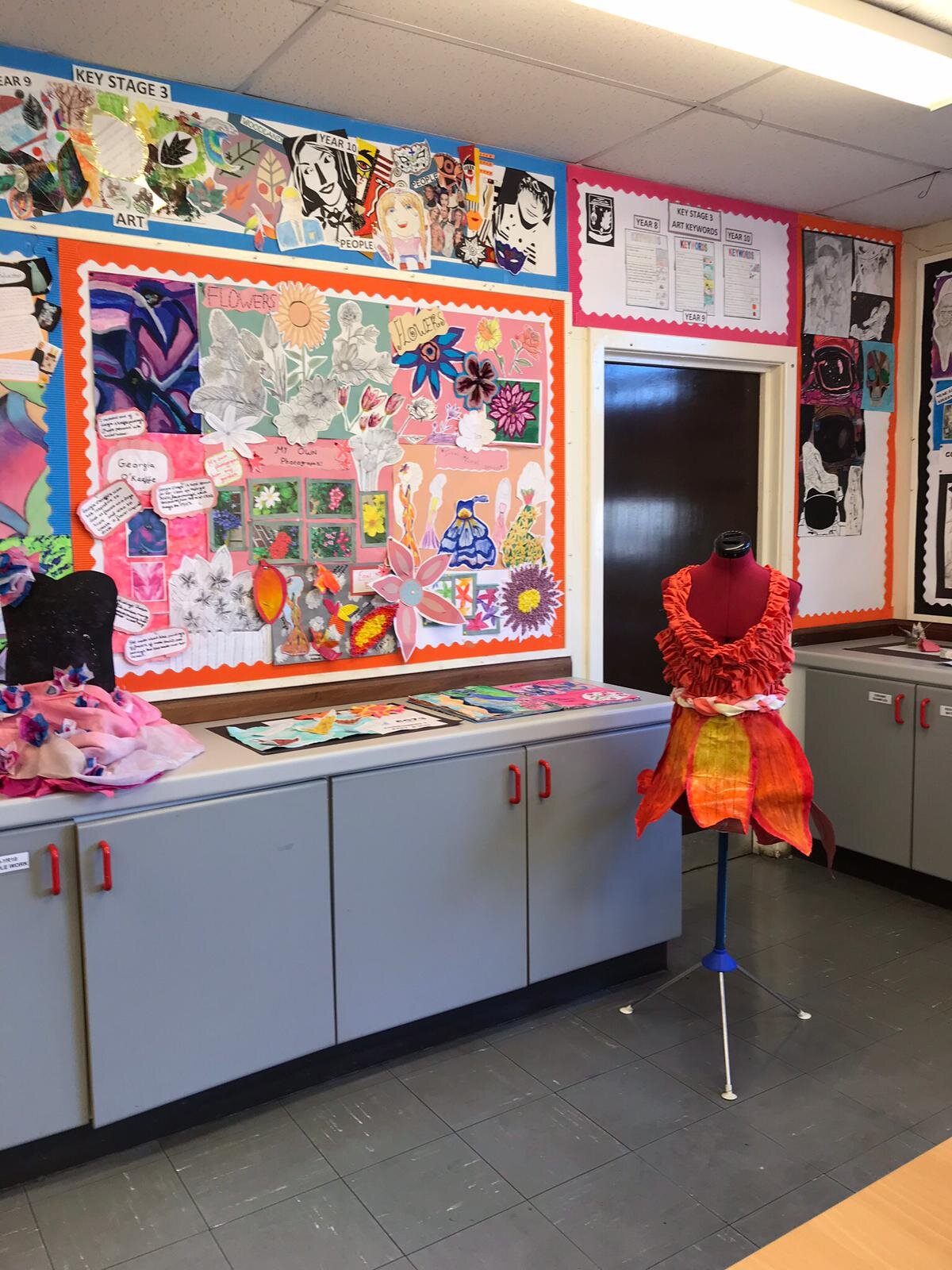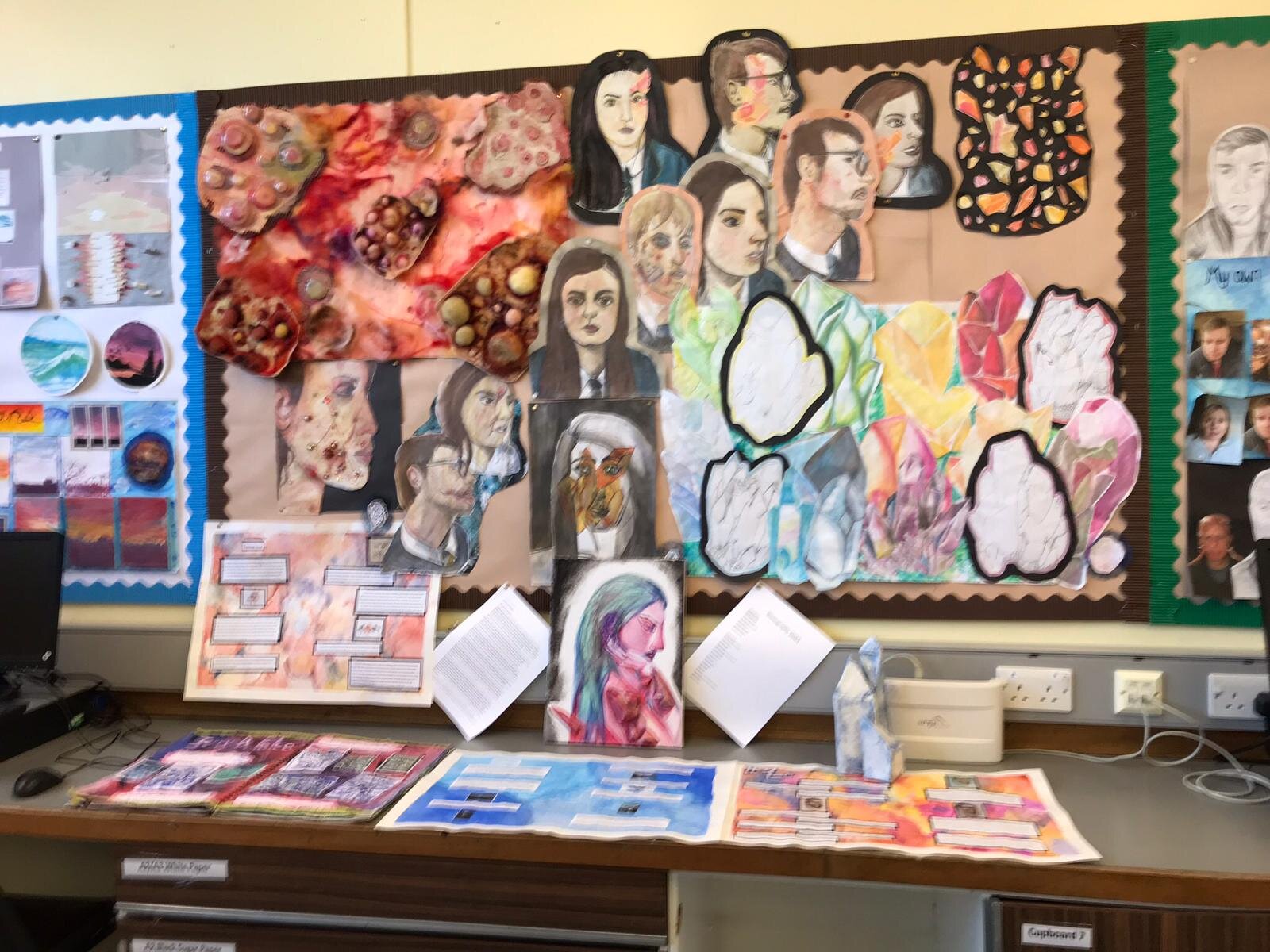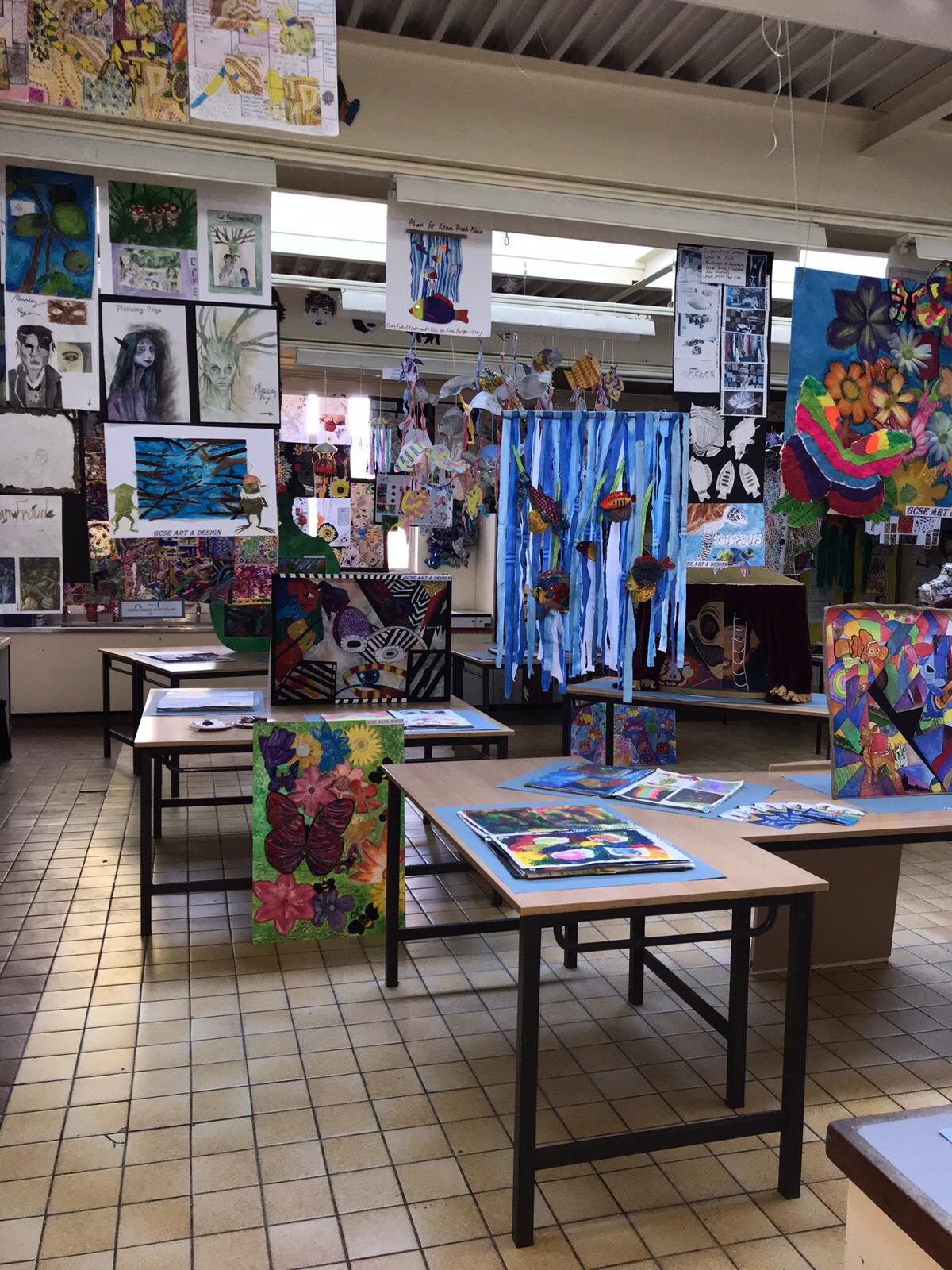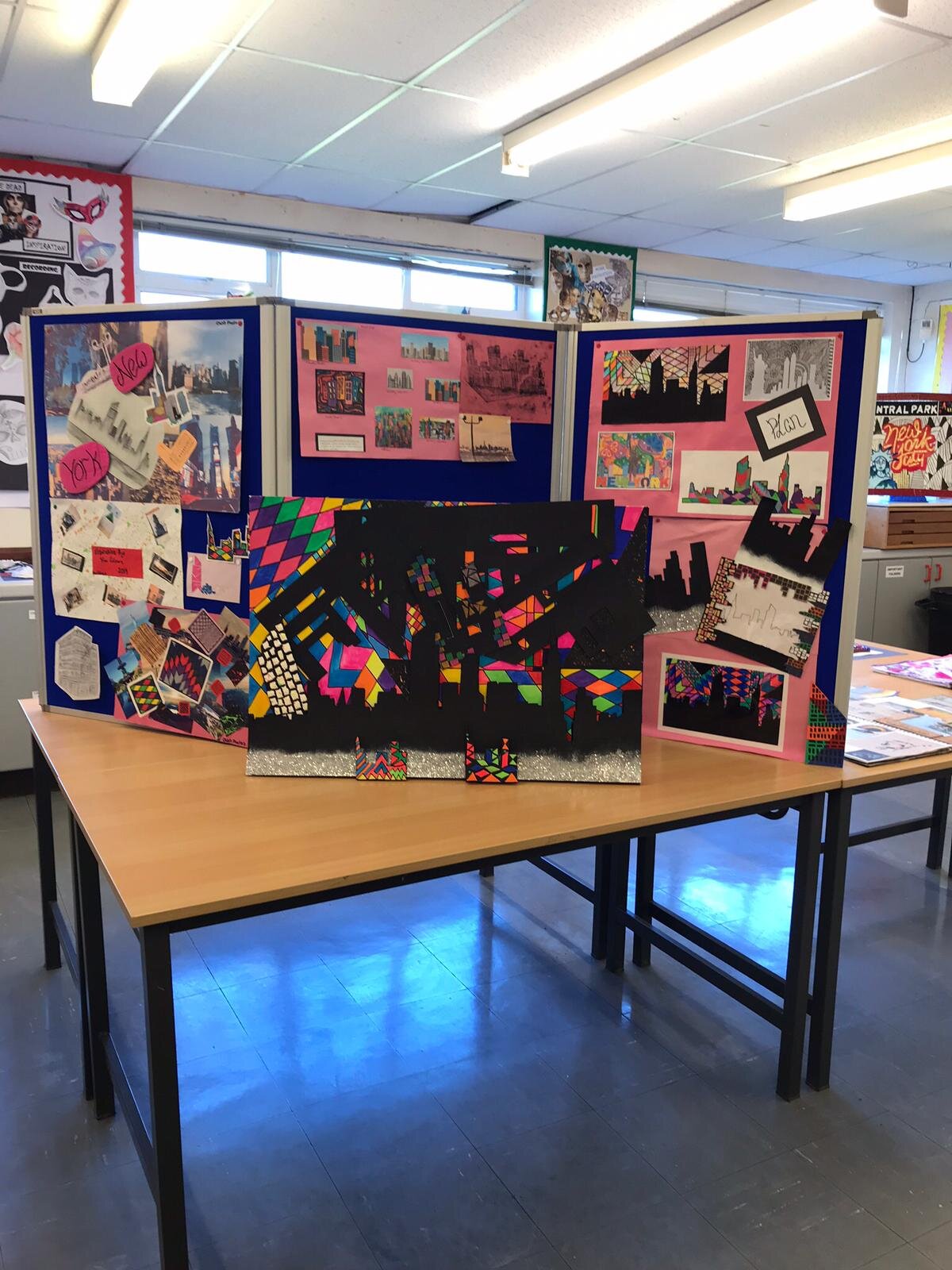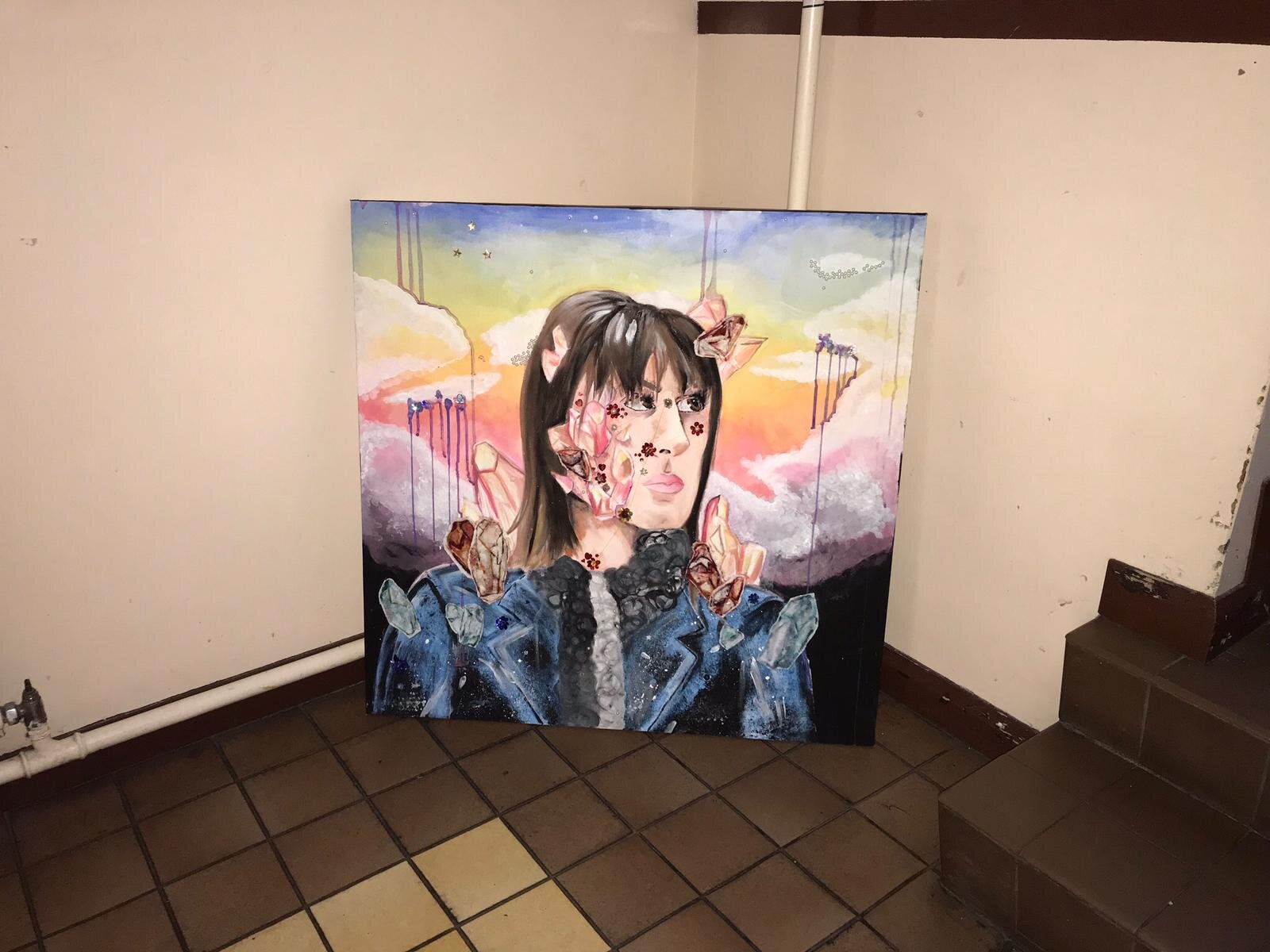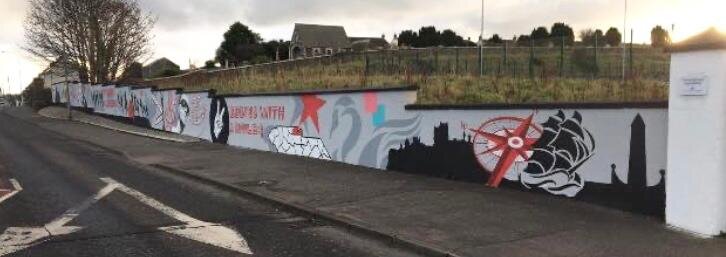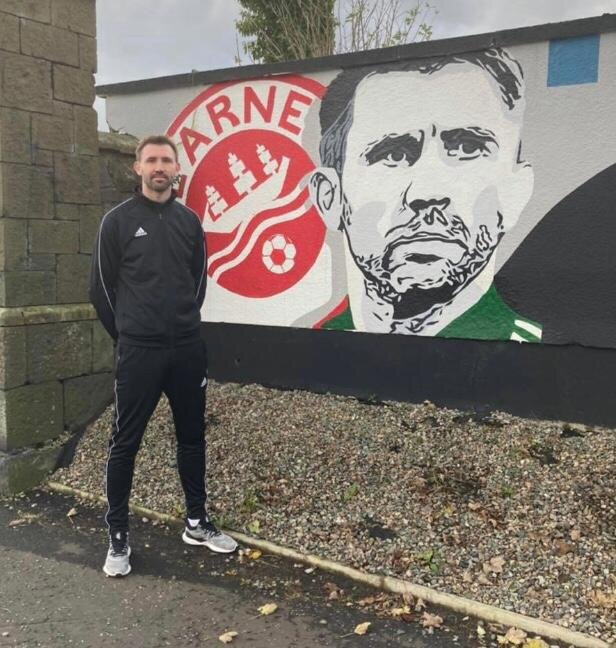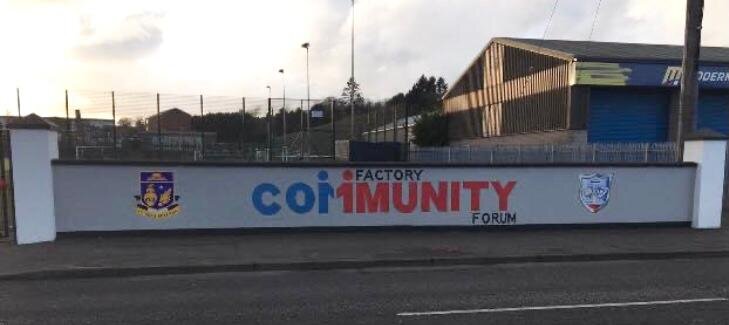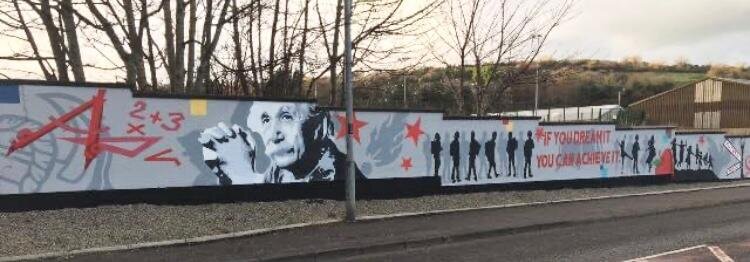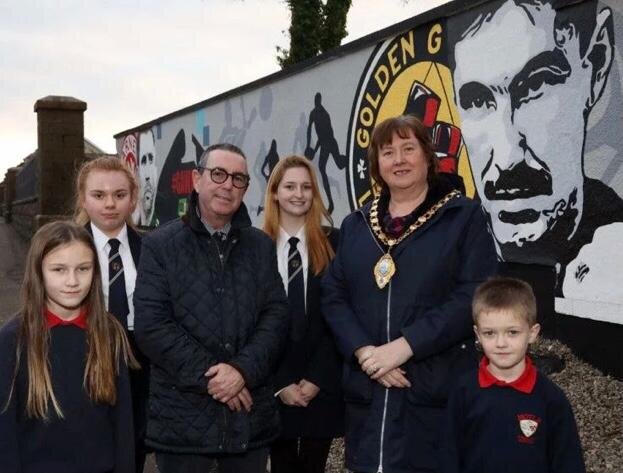Art Department
Staff in Department
Mrs A Fusco (Head of Department)
Mrs A Tyther
Mrs D Sloan (Technician)
Aims of the Department
Key Stage Three Curriculum
Aims
The Art department offers a broad range of activities at Key Stage Three. Pupils will explore in a variety of 2D & 3D media, developing the appropriate skills & techniques associated with them. A thematic approach will provide a context for pupils work.
Topics covered
Year 8 Theme – The Sea
Year 9 Theme – Woodland
Year 10 Theme – People
Assessment
3 tasks assessed throughout the year: Card construction, ceramics and painting.
Key Stage Four Curriculum
Aims
The CCEA GCSE Art and Design specification develops students’ understanding of how meanings, ideas and intentions can be communicated through visual and tactile language. Students learn how to use different media and technologies to realise their intentions. They develop their understanding of the creative and cultural industries, and refine their work through experimentation.
By studying this revised specification, students become critical thinkers with enquiring minds and increase their confidence in taking artistic risks. The course features a renewed focus on drawing, emphasising that it is an essential part of the creative process in all art, craft and design disciplines.
As well as exploring many artistic skills and processes, students develop their knowledge and understanding of historical and contemporary contexts, societies and cultures. The broad and flexible content gives students the freedom to pursue a range of creative pathways.
The specification has two components:
Component 1
- Part A: Exploratory Portfolio
- Part B: Investigating the Creative and Cultural IndustriesComponent 2: Externally Set Assignment.
Exam Board
CCEA
Assessment
Component 1 Part A: 25%
Component 1 Part B: 35%
Component 2: 40%
Useful websites: ccea.org.uk
Key Stage Five Curriculum
Aims
The creative industries are the fastest growing area of the economy and are vital to economic success. Studying art, craft and design creates a pathway to a career in a creative industries-related field.
GCE Art and Design requires students to develop key transferable skills such as creativity, innovation, higher level thinking skills and problem solving. It encourages students to find alternative approaches and take risks in their work. It also develops in depth knowledge of art and design through research and practical activities, intellectual capabilities and independent approaches to learning
Exam Board
CCEA
Assessment
The GCE Art and Design specification is available at two levels: AS and A2. Students can take the AS course as a final qualification. Students who wish to obtain a full A level qualification must also complete the A2 course. The AS units make up 40% of the full A level qualification, and the A2 units make up 60%.
Students may follow a broad pathway through Art, Craft and Design – Combined Studies, or choose from one of three specialisms:
Photography and Lens-Based Media;
Three-Dimensional Design; or
Textiles.
The course has four units: two at AS level and two at A2:
AS 1: Experimental Portfolio
AS 2: Personal Response
A2 1: Personal and Critical Investigation (including a 1000-3000 word written investigation)
A2 2: Thematic Outcome
Useful websites: ccea.org.uk
Extra-Curricular information
In 2018 -2020 the Year 13 A level students had an opportunity to participate in a local Art project. This involved working with artist Dee Craig to develop a large artwork to install on a wall on Old Glenarm Road in Larne to improve the public realm and shared spaces.
The project was part of a Peace IV project supported by Mid and East Antrim Council and delivered by The Hope Centre working with Factory Community Forum and Larne High School.
The young people took part in a number of preparatory sessions with a facilitator and the artist before developing their own designs to install on the wall.
